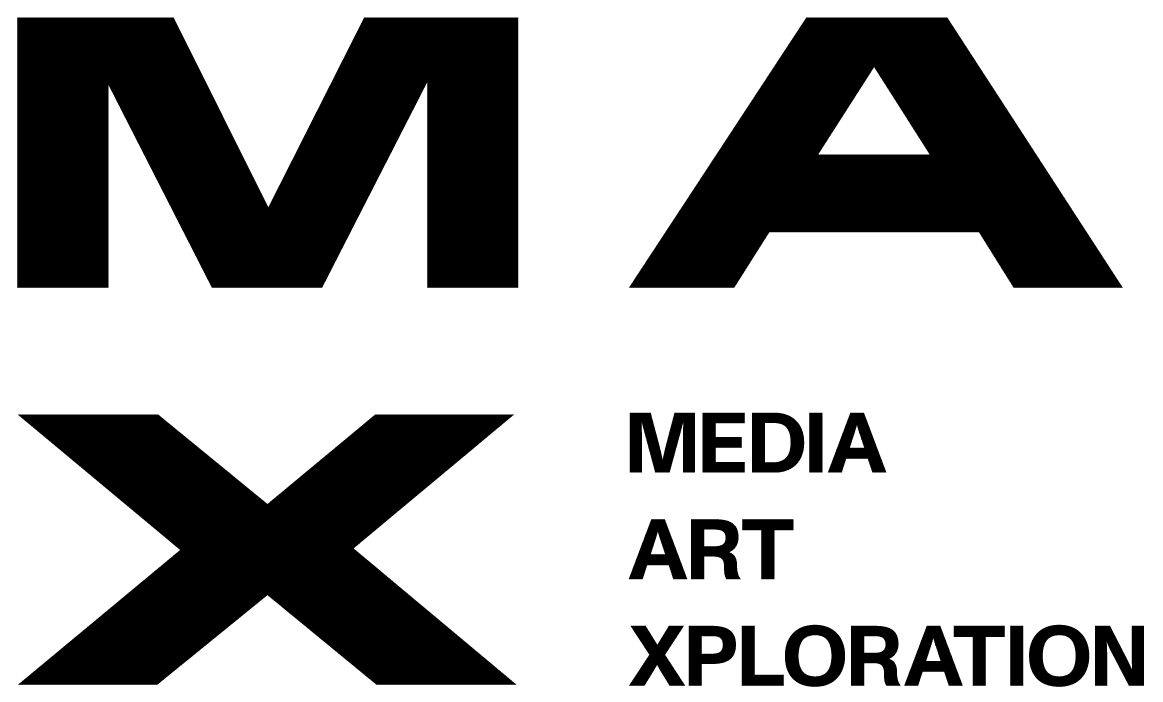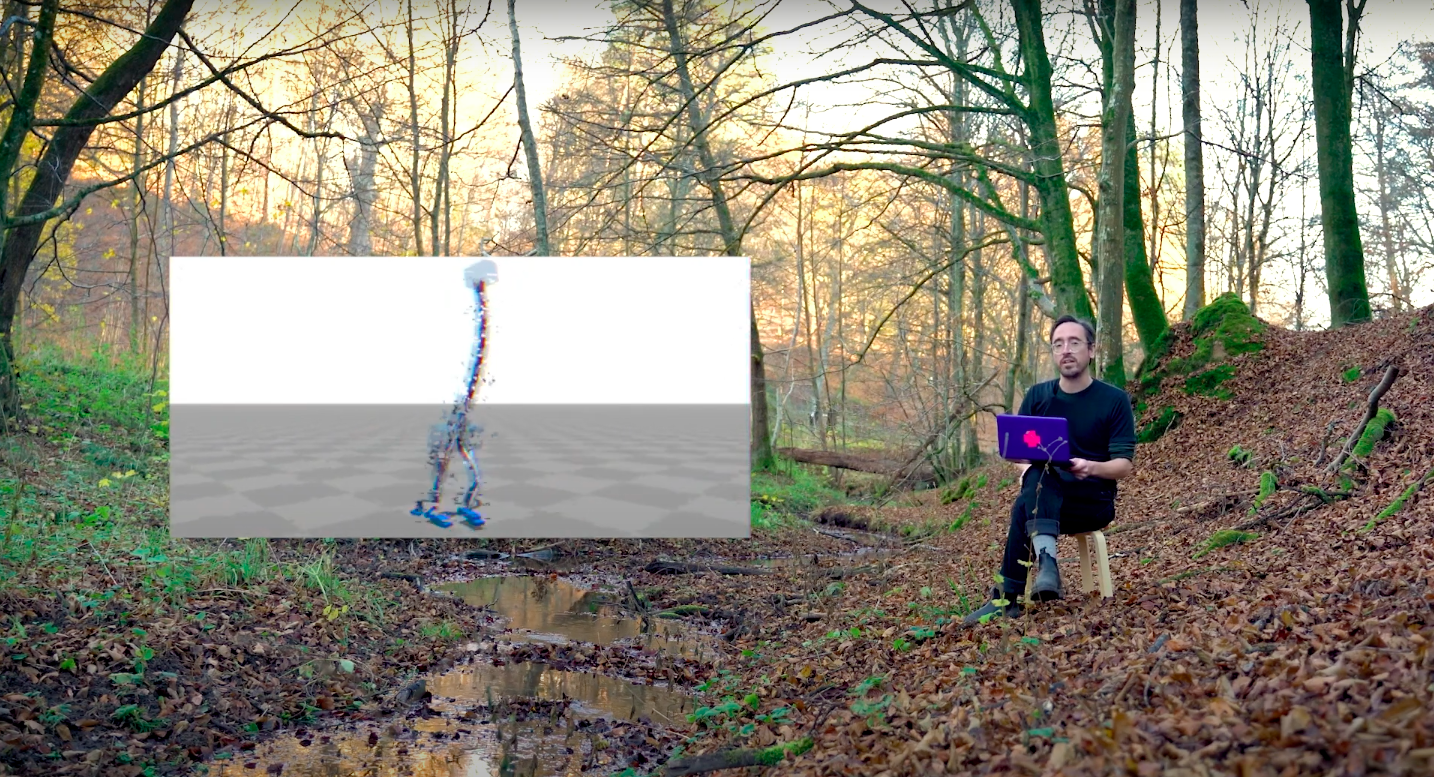In his two-part video series Absurd Intelligence, MAXmachina artist Grayson Earle looks under the hood of code mysteries.
His first video, Usefulness of a Useless Network, uses machine learning to do simple addition. This absurd and rather useless task becomes a way to demystify the black box operations of machine learning algorithms. The second video of the series Why Don’t the Cops Fight Each Other? is an attempt to modify the popular video game Grand Theft Auto, changing the rules of this real world simulation to unexpected ends.
We talked to Grayson Earle about Absurd Intelligence and his practice.
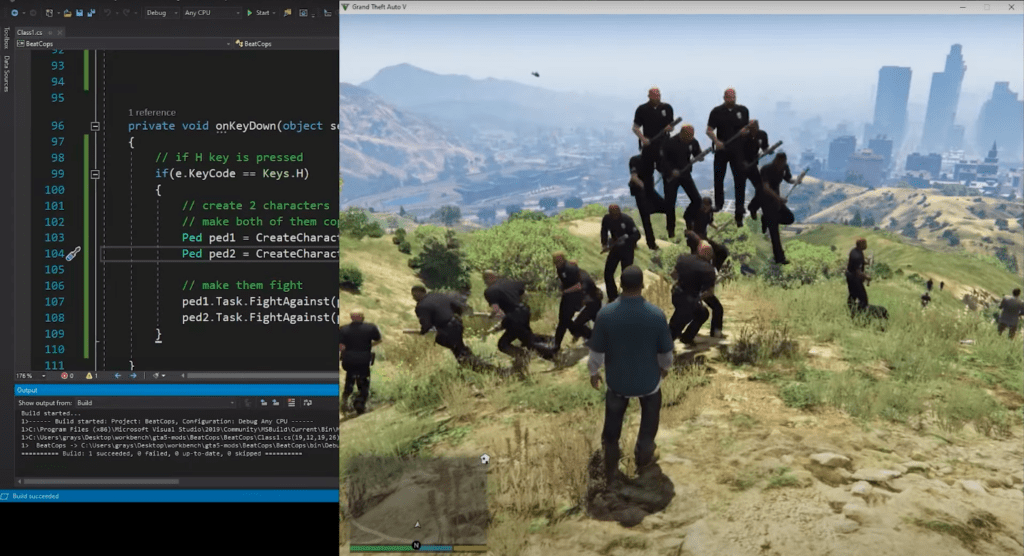 Why Don’t the Cops Fight Each Other
Why Don’t the Cops Fight Each Other
Deniz Tortum: In most of your work, you break systems in order to reveal things or use these systems in ways that weren’t done before. A sort of critical breaking which is both transformational and absurd at the same time. There is a very interesting combination of humor, pedagogy and activism.
I’m curious about your method of critical breaking. We can also say that it is a method of testing the limits of systems. How do you approach this? I’m curious how you start developing your work, what are the things that first attract your attention?
To be specific, what was the reason that made you try to make cops attack each other in GTA?
Grayson Earle: The idea to render cops fighting each other came at one of the pivotal moments in the Black Lives Matter movement. I started to think about different ways of talking about the police in my work. My idea was to create a simulation to watch the police harm each other in this virtual place when we’ve been seeing so much of them harming innocent people and predominantly people of color. It was kind of a cathartic joke and kind of serious at the same time. It became more of an investigation when I found out it wasn’t possible to make the cops fight each other in GTA.
In Grand Theft Auto V, I could give instructions to civilians and they’d fight each other and I could give the exact same instructions to two police officers but they wouldn’t fight each other. I took a forensic approach to the game source code to figure out why. At first I thought that it was a small thing that I could change quickly. But the more I investigated I found out that this allegiance between police officers was baked into the game. Baked in at such a level that there is no existing function in the game to reverse it. You can introduce new models to the game, and use the police officer clothing on new models and that’d be a way to get around it, but that isn’t the same as the police agents fighting each other.
Then, there is a political assumption going on in the source code in the deep level. I don’t think it is necessary to ask the question: “Did Rockstar games do this on purpose?”. I don’t think they did. But it is also irrelevant and maybe it is more interesting that they didn’t do it on purpose and it is a subconscious projection onto the software that the police should operate this way. Through osmosis, we’re understanding police to be this kind of monolith.
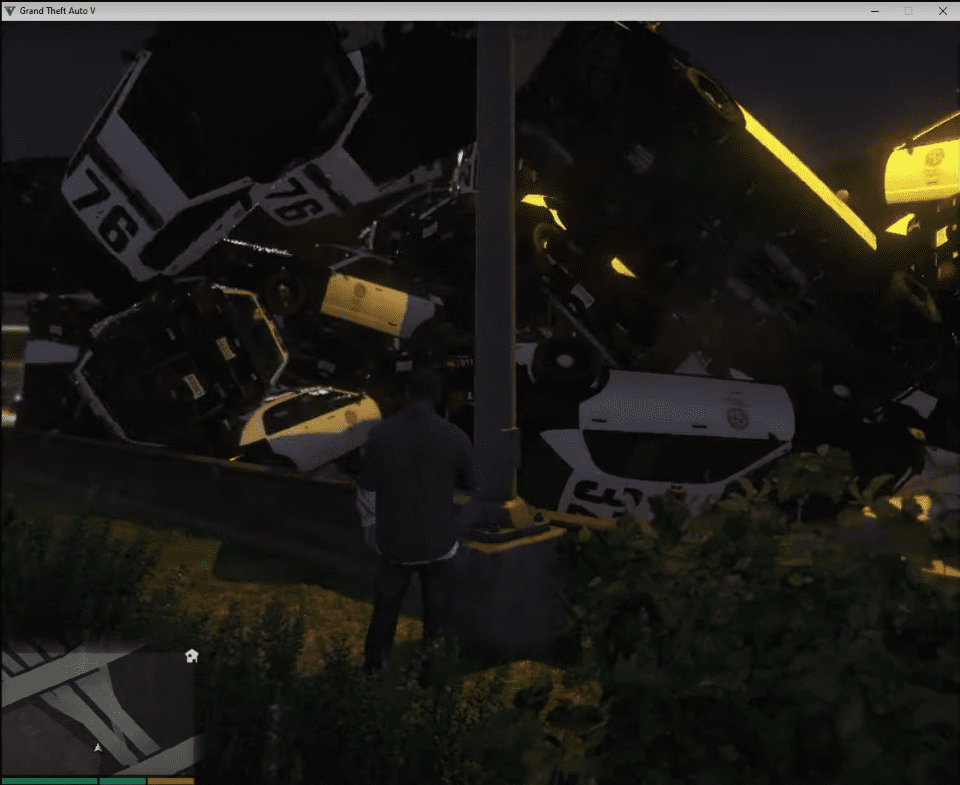 Raining cop cars in Why Don’t the Cops Fight Each Other
Raining cop cars in Why Don’t the Cops Fight Each Other
These get revealed as you test the limits of the game.
Testing limits is definitely a thread that runs through all my work. For example, The Illuminator. Why do advertisers have complete control over the visual space of New York City? What if we reclaimed it? It is not totally legal but not illegal, it’s a gray area. Part of the project is this implicit act of trespassing and finding the contours of the limits. I like to find where the social rules are in space and how much disruptive power we have over them and to render them for everyone, to see them in plain sight when we do a projection.
Your work combines performance art, conceptual art, tech-art. I’m curious about your background and how you started making work?
My practice, among others, is in misappropriating technology. This is the definition of a hacker. My background is more or less in computer science, even though I never studied it formally. It’s something I’ve been doing since I was very young. This is where I’m from, the internet. The first thing I did was a hack for the game Diablo. When I started doing creative things in New York I was very uncomfortable with the label “artist” for so long. I refused to use it and came up with all sorts of ways to describe myself. But one thing that is great about art is that it’s own definition is inside its purview. We can move it as practitioners, we can change what it means. It seems incredibly necessary right now.
So much of political art that existed through time is about raising awareness. It seems to be not as important now. Awareness is a vacuous term, information is everywhere, and everyone is fully capable of being aware. Aware of sets of facts, different realities. I prefer to make work that intervenes on the things that we want to raise awareness about to begin with. Intervening on AI, intervening on financial systems…
On a very factual level, it was when I came to Hunter College’s Integrated Media Art Program, that I met Ricardo Miranda, who became my thesis advisor, also McKenzie Wark, who was very formative. They introduced me to a world that I had no idea existed. I wish I knew about it years before. People like Cory Arcangel… I was like: Oh I have that skill, I can do these things!
From malware to art; trojan horse art! Intervening to imagine better systems: intervening into blockchain to imagine how it can be a crowdfunding system [Bail Bloc], or intervening with projectors to reclaim the public space imagery. This also parallels a philosophy of teaching. How do you imagine better systems, be it computational or societal, and what is your methodology when you’re teaching students?
Technology is mostly irrelevant to the question of how to create a better world because it can’t solve everything. But also to operate a society on a scale larger than 150 people, technology becomes necessary, even just a way to make decisions or catalogue decisions. I’ve taken part in a lot of alternative living situations. Lived in a cooperative for seven years when I first arrived in Brooklyn. We did things like leverage economy of scale together as 14 people, to buy bulk goods, to buy from local farmers. That way we can get more for less money. We dumpster dived to remove from the waste stream while feeding ourselves. And we rented a whole brownstone and got a significant rent reduction. This cooperative model that uses consensus based decision making is really important. It is also gaining a lot of steam since Occupy.
As far as teaching goes, I see teaching and art making as very much the same thing. That is why I’m more comfortable talking about what I do as cultural production than as art. It is all about production of culture, production of people that can then produce more culture and digest culture for other people. Looking at events and running a horizontal classroom, talking through things and breaking things down… I ran a class at Oberlin College, where the final project brought The Illuminator on campus and students designed interventions on the architecture of the school. The students broke off to their research groups. One of the groups went to Oberlin College archives and found all the amazing stuff that happened on campus through the civil rights movement, and through the vietnam war. They were able to educate the students and faculty about these stories that were forgotten and did it in a unique way.
That is to say, to look at our direct circumstances and surroundings and not point to something abstract and far away. That is the methodology. Talk about it but also go do it.
How to build a better society and what technology could have to do. There are such divergent opinions about it. There is an anti-technology thing on the left. It is not unwarranted from everything that has happened, for sure. There are some interesting perspectives from science fiction I take very seriously. Iain Banks: The Culture Series talks about this idea of fully-automated-luxury-communism. What would it mean to have AIs as the caretaker of the human species?
When you see the contours and ends of a thing, you understand it better. It is similar to growing up on the internet, figuring out things by breaking things.
That’s how I learned to program, you change one thing and understand what that thing does. Learning through making a million mistakes.
In the Usefulness of a Useless Neural Network, the task you have is how to make this machine learning algorithm work inefficiently. Find the task it does much worse than humans.
Or worse than itself!
Do you think computers can be funny?
Maybe Usefulness of a Useless Neural Network is an attempt at channeling humor through neural networks. They can be funny if they do something unexpected. To make a machine that is intended to produce logic, produce something that is totally absurd, is funny! It is soliciting a laugh. 3+2=4.9…
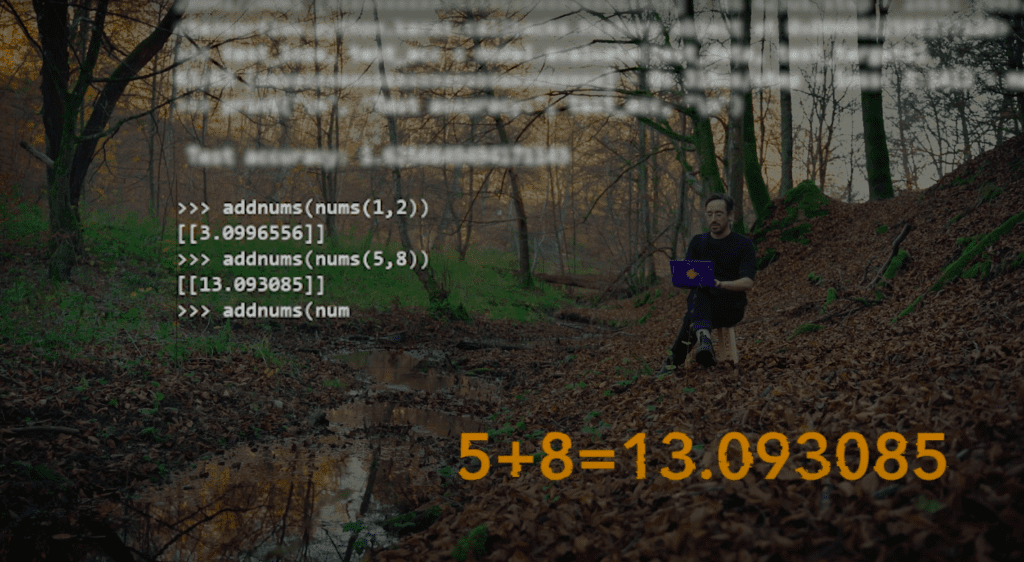 Approximate math of machine learning in Usefulness of a Useless Network
Approximate math of machine learning in Usefulness of a Useless Network
Humor could be something hard to achieve in serious topics: in art about technology, environmental art, art that deals with climate change… But it is one of the most convincing communication tools we have.
It takes the edge off of things. I think back to Dave Chapelle show, it was formative to me and to so many people. I grew up in a conservative white area and that show introduced me to so many things, and did it in a humorous way. Talked about racism, white supremacy, very serious things, and introduced me to these topics, gave me a bit of an education on these. But did it in a way that didn’t scare me off as a young kid who never heard these things before. It is inviting and entertaining to encounter.
But it is tough. Things like racism and climate change, they are so not funny. The destruction of all life on earth. But you have to be able to laugh, but not laugh at it in a way you give up and you become detached.
Otherwise, you can’t keep going on. It is interesting to hear about Dave Chapelle, was there anything else that was formative for you?
The Guerilla Girls. They are wearing these gorilla masks when they are doing prankster things, taking over these billboards, and critiquing institutions. It was a great delivery mechanism and excited me as a young artist on multiple registers.
Was there an internet forum you grew up on?
To be honest, I wasn’t cool enough to be on BBS forums. I was definitely a gamer, it was probably gamer forums. My parents had dial up internet of 28k until I was 19. I went to college and experienced broadband and got kicked off for downloading all these movies.
Finally, could you talk about your experience at MAXmachina. How was it for you?
Everything had to change because of COVID; luckily you all have been very receptive and nurturing, and gave me the ability to grow the project. Something wild about MAX is the access you have to experts in the field. Talking to lead researchers of machine learning… I value the meetings we had with the cohort and the conversations. Talking to Alice about how much of machine learning is in the visual sphere and almost entirely it is operating on visual input. It doesn’t need to be that way. It can take other sensory information. It’s been a great experience.
